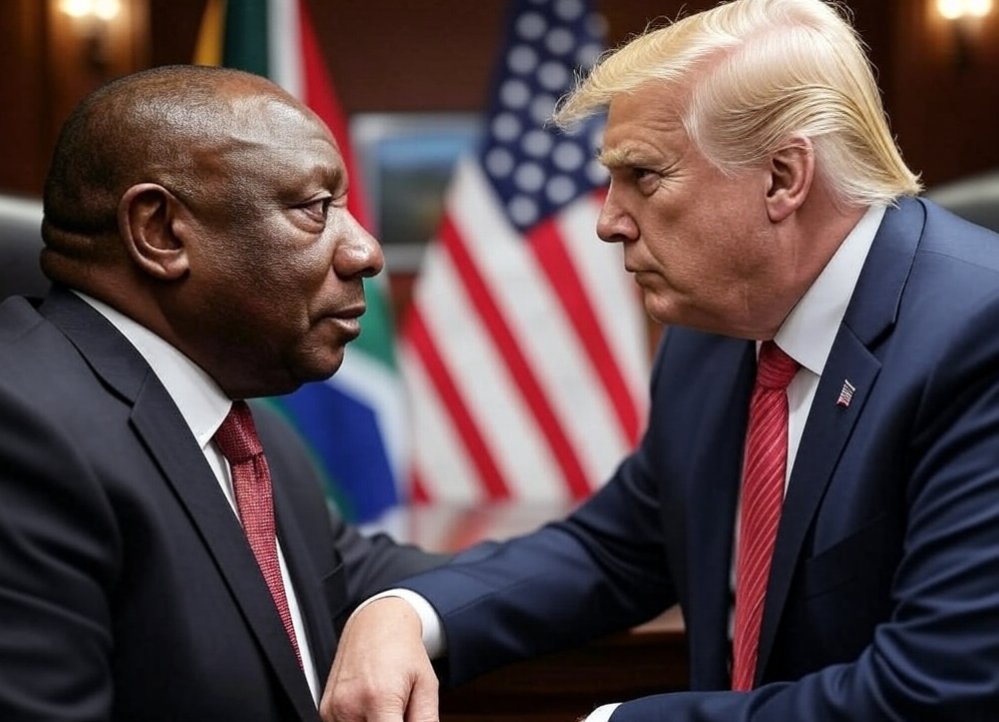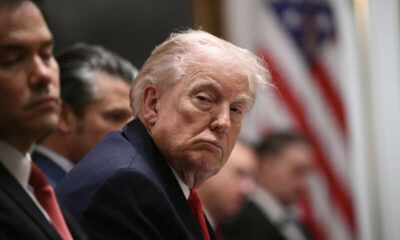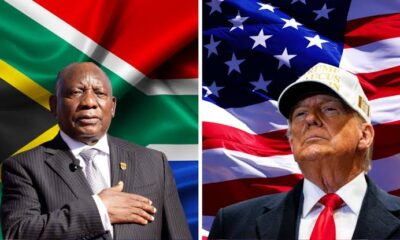Business
Tensions, Trade, and Tough Talk: SA Navigates US Relations Ahead of G20 Summit

Business leaders push for calm and collaboration amid political firestorms and food system fears
As South Africa prepares to host the highly anticipated G20 Summit later this year, diplomatic friction with the United States is adding an unpredictable layer to the already complex gathering. Despite rumblings from Washington, where former President Donald Trump has publicly suggested he may skip the event, local business leaders are holding onto hope and leaning into diplomacy.
B20 Pushing Through the Noise
Leading the charge is Cas Coovadia, the Sherpa for B20 South Africa, the business arm of the G20. Coovadia, a veteran of financial diplomacy, is choosing optimism over outrage. He insists that while political leaders may wrangle, business leaders from both countries are staying engaged and committed to shared progress.
“American business hasn’t checked out. In fact, they’re showing up,” Coovadia said, speaking about regular meetings with the American Chamber of Commerce in Washington. “We’ve got C-suite execs sitting on our task forces, some even as co-chairs. The business side knows what’s at stake.”
It’s a deliberate attempt to insulate economic cooperation from diplomatic turbulence. And turbulence there is.
US Tariffs and the “White Genocide” Controversy
The South African government has recently found itself in the crosshairs of a growing narrative in US political circles accusing it of hostility toward white citizens, a claim rooted more in ideology than fact. Trump’s administration has reignited this controversial debate, offering refugee status to white South Africans and pushing a trade policy that critics say punishes Pretoria for imagined sins.
Starting this Friday, the US is set to impose a steep 30% tariff on most South African imports. And if that wasn’t enough, the US Congress is advancing the US-SA Bilateral Relations Review Act of 2025, a bill that could see official sanctions placed on South Africa.
To many observers, it’s clear: political posturing is getting in the way of pragmatic global cooperation.
Business Leaders Want Washington at the Table
Despite these tensions, the message from B20 is consistent, don’t shut the door just yet.
“America is 15% of global trade,” Coovadia noted. “But the other 85% still wants to work together. The G20 isn’t just a political summit—it’s a platform to solve real issues. And we want the US there.”
Technical teams from the US have already participated in early G20-related meetings held in Zimbali, KwaZulu-Natal. But whether Trump himself shows up in Johannesburg remains uncertain.
The Bigger Global Picture: A Looming Food Crisis
Beyond politics and tariffs, B20 is also sounding the alarm on food security, with a focus that feels both urgent and deeply personal.
Debra Mallowah, who chairs the B20’s Sustainable Food System and Agriculture Taskforce, didn’t mince words when she warned of a creeping global crisis.
“One in ten people on this planet goes hungry,” Mallowah said. “What happens when your bread triples in price? When your grocery store shelves go empty, not because of local drought, but because of a supply chain collapse in another continent?”
Her message is clear: food security is more than a humanitarian issue. It’s tied to national security, global economics, and the climate crisis. And it can’t be fixed without cooperation.
Africa as a Global Breadbasket
Mallowah added a hopeful note to an otherwise grim forecast. Africa, she said, is not just at risk, it’s also part of the solution.
With 60% of the world’s uncultivated arable land and a farming network dominated by smallholders, many of them women, Africa holds untapped agricultural potential. But unlocking that value requires investment, infrastructure, and inclusion.
“These farmers are already feeding 70% of the continent. Imagine what they could do with the right tools and access to markets,” Mallowah said.
Cooperation Over Conflict
As G20 preparations ramp up, the tone in South Africa’s business community is one of cautious hope. The message? We don’t have to agree on everything to build something better together.
While political noise makes headlines, it’s the quieter work behind the scenes, meetings, collaboration, partnerships that will determine the summit’s success. And perhaps even the future of global trade and food stability.
For South Africa, this G20 isn’t just a chance to host. It’s a moment to lead.
{Source: IOL}
Follow Joburg ETC on Facebook, Twitter , TikTok and Instagram
For more News in Johannesburg, visit joburgetc.com



























